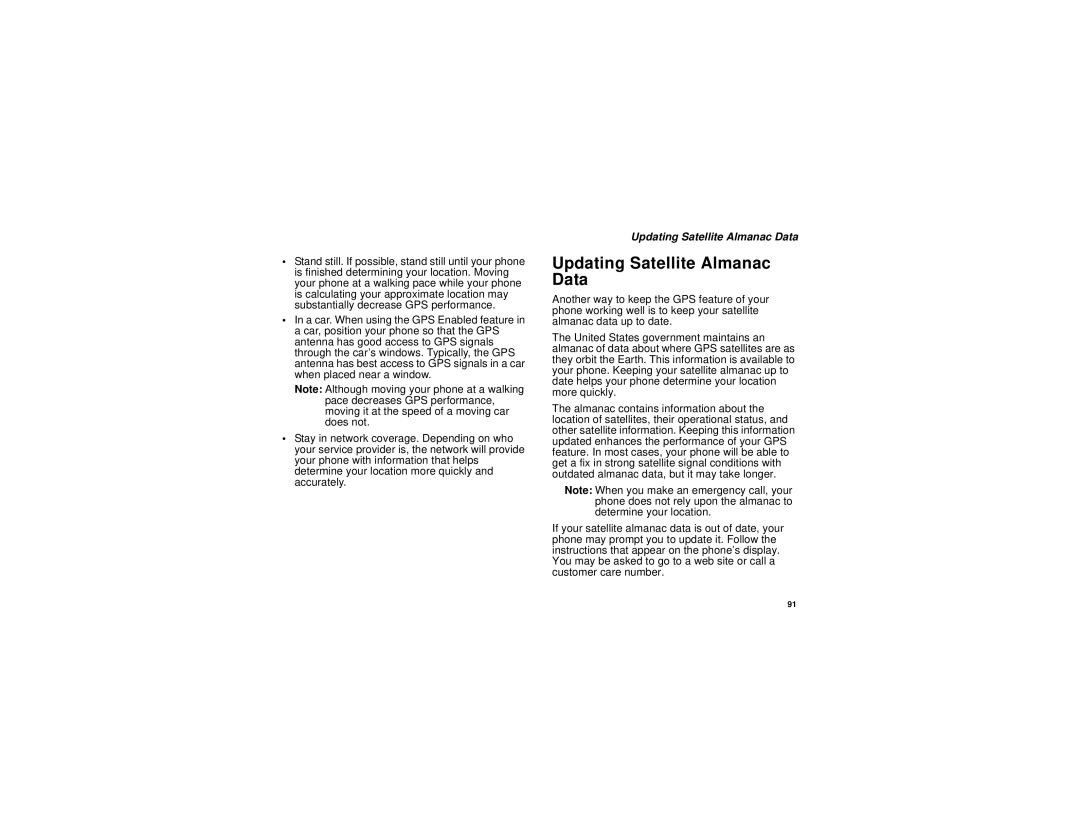•Stand still. If possible, stand still until your phone is finished determining your location. Moving your phone at a walking pace while your phone is calculating your approximate location may substantially decrease GPS performance.
•In a car. When using the GPS Enabled feature in a car, position your phone so that the GPS antenna has good access to GPS signals through the car’s windows. Typically, the GPS antenna has best access to GPS signals in a car when placed near a window.
Note: Although moving your phone at a walking
pace decreases GPS performance, moving it at the speed of a moving car does not.
•Stay in network coverage. Depending on who your service provider is, the network will provide your phone with information that helps determine your location more quickly and accurately.
Updating Satellite Almanac Data
Updating Satellite Almanac Data
Another way to keep the GPS feature of your phone working well is to keep your satellite almanac data up to date.
The United States government maintains an almanac of data about where GPS satellites are as they orbit the Earth. This information is available to your phone. Keeping your satellite almanac up to date helps your phone determine your location more quickly.
The almanac contains information about the location of satellites, their operational status, and other satellite information. Keeping this information updated enhances the performance of your GPS feature. In most cases, your phone will be able to get a fix in strong satellite signal conditions with outdated almanac data, but it may take longer.
Note: When you make an emergency call, your phone does not rely upon the almanac to determine your location.
If your satellite almanac data is out of date, your phone may prompt you to update it. Follow the instructions that appear on the phone’s display. You may be asked to go to a web site or call a customer care number.
91
